Table of Contents
Directions (1-5): Given below are the number of students (in hundreds) in two schools A and B, in different years. Answer the following questions based on given DI.
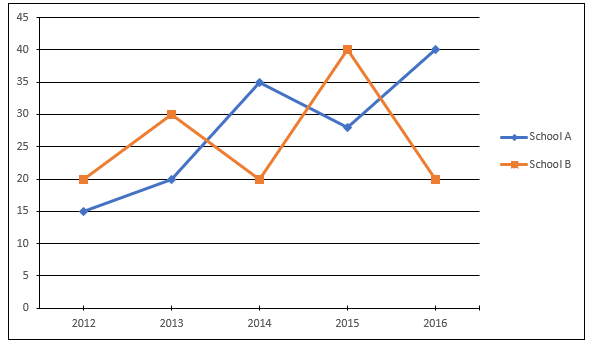
Q1. What is the average number of students of school A in the year 2013, 2014 and 2016 and number of students of school B in the year 2012 and 2015 together?
(a) 3300
(b) 2500
(c) 3100
(d) 1550
(e) 2250
Q2. If in year 2017, number of students of school A decreases by 25% and that of school B increases by 10% as compared to year 2016. Find total number of students of school A and B together in 2017.
(a) 4500
(b) 5200
(c) 6500
(d) 4800
(e) 5000
Q3. Total number of students of school B in year 2015 is approximately what percent more than that of total number of students of school A in year 2012.
(a) 164%
(b) 162%
(c) 170%
(d) 172%
(e) 167%
Q4. If school A students in year 2012 decreases by 20% as compared to 2011. What was the total number of students in school A in 2011?
(a) 1875
(b) 1650
(c) 1700
(d) 1775
(e) 1675
Q5. Find the ratio of students in school A in the year 2013 and 2014 to the students in school B in the year 2015 and 2016 together?
(a)12 : 11
(b) 8 : 7
(c) 1 : 6
(d) 3 : 2
(e) 11 : 12
Directions (6- 10): line-chart given below shows production of two companies (in lakhs) Maruti and Honda in six different years. Study the date carefully & answer the following questions.
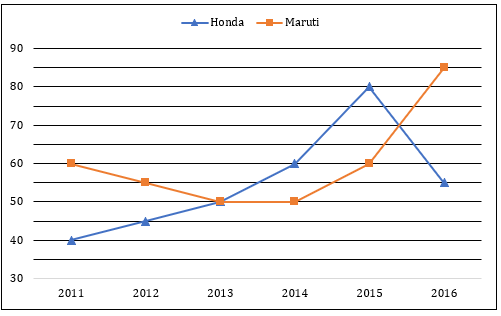
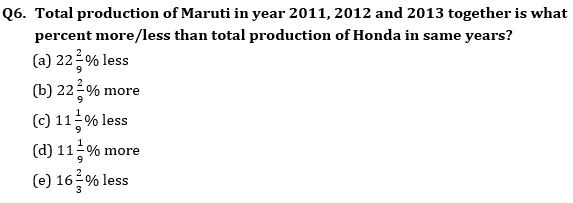
Q7. Average production of Maruti in year 2014, 2015 and 2016 together is how much more/less than the average production of Honda in year 2014, 2015 and 2016 together. (in lakhs)
(a) 8
(b) 5
(c) 10
(d) 0
(e) 12

Q9. In 2017, production of Maruti and Honda increase by 20% and 40% respectively with respect to year 2016. Find the total production in 2017. (in lakh)
(a) 179
(b) 185
(c) 190
(d) 185
(e) 197
Q10. Find the ratio of total production of Maruti is 2013, 2014 and 2015 together to the total production of Honda in 2014 and 2015 together?
(a) 9 : 8
(b) 9 : 7
(c) 7 : 8
(d) 8 : 7
(e) 8 : 9
Directions (11–15): Given below line graph shows Import and export (in cr.) of Nepal in five different years. Read the data carefully and answer the questions.
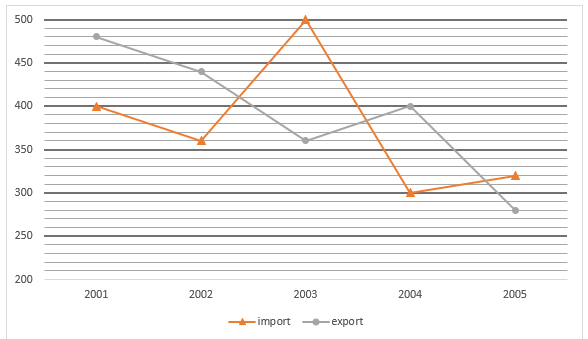
Trade deficit = Import – Export
Trade Surplus = Export -Import
Q11. The total imports in the year 2001 & 2003 together is what percent more than total exports in the year 2002 & 2003 together?
(a) 18%
(b) 8%
(c) 10.5%
(d) 12.5%
(e) 12%
Q12. Find the average of trade deficit in the year 2003 & 2005?
(a) 120 cr.
(b) 90 cr.
(c) 80 cr.
(d) 110 cr.
(e) 100 cr.

Q14. Find the ratio of trade surplus in the year 2004 to trade surplus in the year 2001 & 2002 together?
(a) 5 : 8
(b) 5 : 11
(c) 5 : 7
(d) 5 : 6
(e) 5 : 12
Q15. Trade deficit in the year 2005 is what percent less than trade surplus in the year 2001?
(a) 40%
(b) 50%
(c) 48%
(d) 60%
(e) 30%
Practice More Questions of Quantitative Aptitude for Competitive Exams:
Quantitative Aptitude for Competitive Exams |
Quantitative Aptitude Quiz For ECGC PO 2021- 22nd January |
Quantitative Aptitude Quiz For ECGC PO 2021- 21st January |
ECGC PO Study Plan 2021 |
Solutions

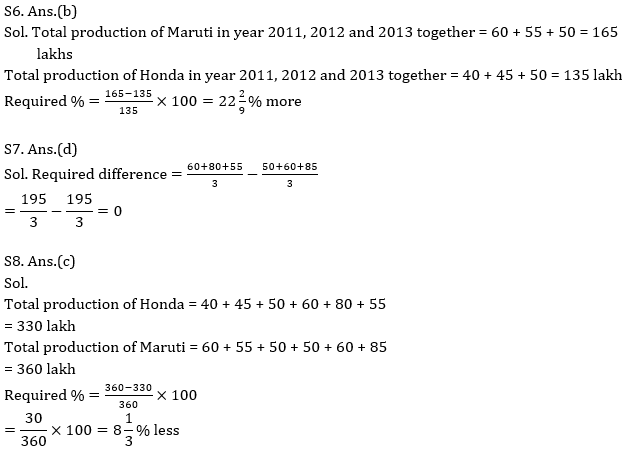

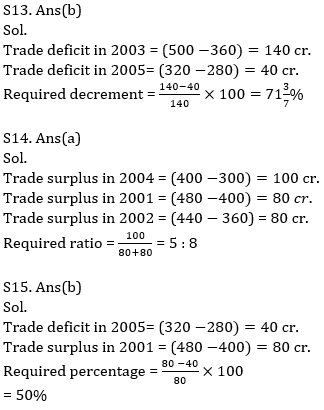
Practice with Crash Course and Online Test Series for ECGC PO 2021:
- ECGC Online Coaching Classes for Probationary Officier 2021
- ECGC PO Mock Tests 2021 – Banking Online Test Series (With Solutions) by Adda247
- ECGC PO 2021 Complete eBooks Kit (English Medium)
Click Here to Register for Bank Exams 2020 Preparation Material

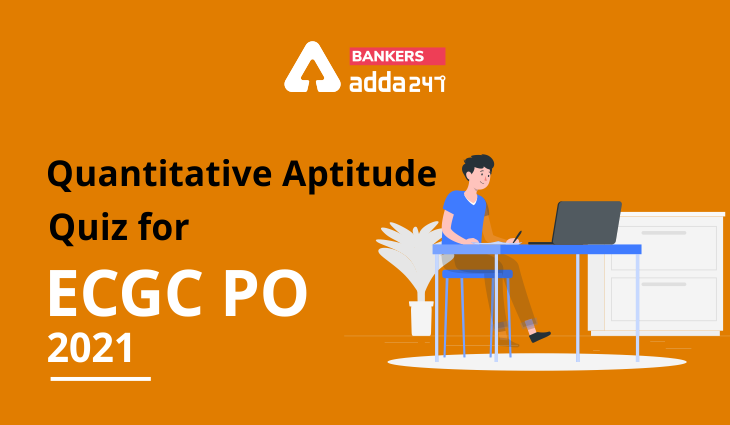


 GA Capsule for SBI Clerk Mains 2025, Dow...
GA Capsule for SBI Clerk Mains 2025, Dow...
 The Hindu Review October 2022: Download ...
The Hindu Review October 2022: Download ...
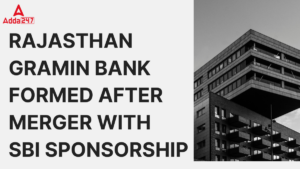 Rajasthan Gramin Bank Formed after Merge...
Rajasthan Gramin Bank Formed after Merge...





